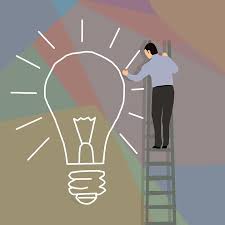
マインドセット(心の持ちよう)を変えることで、仕事の成果を飛躍的に上げられる
というのが、「心のレバレッジ化」と著者が呼ぶ法則です。つまり、レバレッジ
(てこ)の支点を変えれば、より大きな力をもたらすようになる、という原理が、心と
仕事の関係にも応用できると言うのです。それは、単に気分的なものではなく、
肉体的・物理的変化となって現れることが、科学的に証明されている――バイリンガル
でお届けします。
What this means in the workplace is that beliefs can actually change the concrete results
of our efforts and our work. This isn’t just a theory; it’s been proven by a number of
serious scientific studies.
職場においても、何かを信じることが、努力や働きの具体的な結果を変えることが
ある。これは単なる「理論」ではない。多くの正式な科学的研究によって実証されて
きた。
In one conducted a few years ago, Ali Crum, one of my former students and now
research colleague from Yale University, teamed up with Ellen Langer to perform
an experiment on the cleaning staff of seven different hotels. They told half of the
employees how much exercise they were getting every day through their work, how
many calories their daily activities burned, how similar vacuuming is to a cardio workout,
and so on. The other half of the cleaning staff, as the control group, was given no such
good news.
2、3年前、7つのホテルの清掃員を対象に、こんな研究が行われた。私の昔の学生で
現在はイェール大学の研究員であるアリ・クラムと、エレン・ランガーの共同研究で
ある。彼らはホテルの清掃員を半分に分け、片方のグループに、この仕事によって彼ら
が毎日かなりの運動をすることになると伝えた。どれだけのカロリーを燃焼するかと
いうことや、掃除機をかける身体の動きは、心肺機能を高める体操と同じ効果があると
いうことなどを説明した。他方のグループには何も伝えなかった。
At the end of the experiment, several weeks later, Crum and Langer found that those
who had been primed to think of their work as exercise had actually lost their weight; not
only that, but their cholesterol had also dropped. These individuals had not done any
more work, nor had they exercised any more than the control group. The only difference
was in how their brains conceived of their work they were doing. The point is so
important, it bears repeating: The mental construction of our daily activities, more than
the activity itself, defines our reality.
数週間後、仕事は運動効果があると伝えられた清掃員たちは、実際に体重が減り、
コレステロール値も下がっていた。いつもより余分に働いたわけでもないし、仕事以外
の運動をしたわけでもない。変わったのは、彼らの脳が自分の仕事をどのように
捉えたかという点だけだ。このポイントは非常に重要なので、ぜひ理解してほしい。
“日々の行動を自分の心がいかにとらえているかが、その行動自体よりも現実を
決定する”
いかがでしたか?この実験結果を聞いて、世界で1億部売れているというビジネス書の
日本語タイトル「思考は現実化する」を連想したのは私だけでしょうか? 「仕事が
つまらない」という思考をする人は、つまらないと考えれば考えるほど、本当に
そうなってくるということなのです。逆に、自分が今していることを「楽しい」と思考
することで、脳の働きを変化させ、ますます楽しむことができるようになる――肝に
銘じたい法則ではないでしょうか。

幸福優位7つの法則 仕事も人生も充実させるハーバード式最新成功理論
- 作者: ショーン・エイカー,高橋由紀子
- 出版社/メーカー: 徳間書店
- 発売日: 2011/08/27
- メディア: 単行本(ソフトカバー)
- 購入: 4人 クリック: 103回
- この商品を含むブログ (4件) を見る
■プライバシー・ポリシー
当ブログは、Amazon.co.jpを宣伝しリンクすることによってサイトが紹介料を獲得
できる手段を提供することを目的に設定されたアフィリエイト宣伝プログラムである、
Amazonアソシエイト・プログラムの参加者です。このプログラムにおいて、
第三者がコンテンツおよび宣伝を提供し、ユーザーからの情報を収集し、訪問者の
ブラウザーにクッキーを設定することがあります。プログラムにおいて情報の
扱いについてはAmazon.co.jpプライバシー規約をご確認ください。
Amazon.co.jp ヘルプ: Amazon.co.jp プライバシー規約

![The Happiness Advantage: The Seven Principles of Positive Psychology That Fuel Success and Performance at Work [Audiobook Unabridged] [Happiness Advantage Audiobook] Shawn Achor (Author Reader) The Happiness Advantage: The Seven Principles of Positive Psychology That Fuel Success and Performance at Work [Audiobook Unabridged] [Happiness Advantage Audiobook] Shawn Achor (Author Reader)](https://images-fe.ssl-images-amazon.com/images/I/41AYdyiUBNL._SL160_.jpg)





